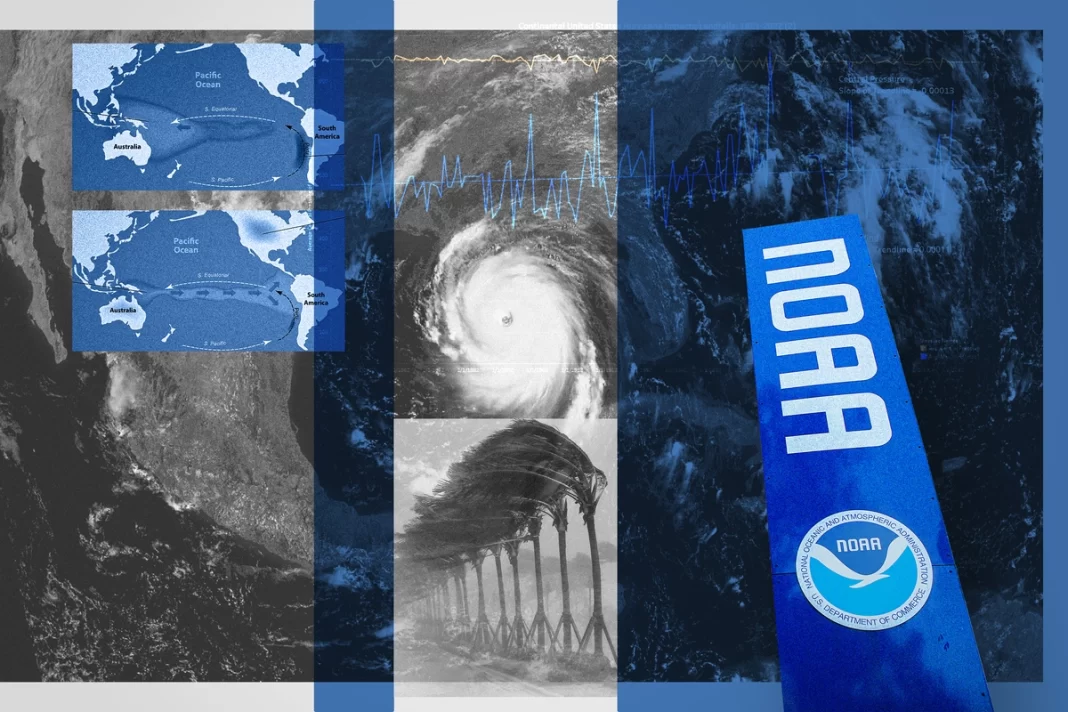
Hurricanes are now ’smaller and more compact‘ says a meteorologist, but the predicted ferocious season will become a ’political football’ for climate alarmism.
This year’s hurricane season, which officially starts June 1, is being predicted by WeatherBELL as the “hurricane season from hell,” with weather patterns similar to those of 2005, 2017, and 2020.
Along with it, says the firm’s meteorologist and chief forecaster Joe Bastardi, will come the climate change blame game, which he calls a false narrative.
In 2005, Hurricane Katrina hit Louisiana, killing an estimated 1,833 people and causing approximately $161 billion in damages. In 2017, Hurricane Harvey hit Texas, Irma hit the Caribbean, and Maria hit the Caribbean and Puerto Rico, resulting in at least 3,364 fatalities and a combined cost of over $294 billion in damages.
In 2020, six major hurricanes landed, resulting in the National Oceanic and Atmospheric Administration (NOAA) dubbing 2020 the “most active season in recorded history.”
Following each season, government officials, committees, and scientists were quick to blame climate change.
“There is perhaps no better example of the potential for devastating global warming impacts than the Gulf Coast and Hurricane Katrina,” the U.S. Select Committee on Energy Independence and Global Warming stated after Katrina.
“While the contribution of human-caused warming to Hurricane Katrina is difficult to quantify, scientists have unearthed a trend towards larger, more intense storms as oceans around the world warm.”
After Irma, United Nations Secretary-General António Guterres called the 2017 season “the most violent on record.”
“Changes to our climate are making extreme weather events more severe and frequent, pushing communities into a vicious cycle of shock and recovery,” he stated.
After the 2020 season, Jim Kossin, an atmospheric research scientist at NOAA’s National Centers for Environmental Information, blamed “warmer-than-average ocean temperatures” for the hurricane “hyper-activity.”
He said an increase in more ferocious hurricanes over the past 40 years was linked to climate change.
Mr. Bastardi said he expects to hear similar messaging this year if it pans out like he’s predicting.
“If you hang around people constantly spouting negative stuff and how bad it is, guess what you’re going to believe? … It’s a great strategy for pushing this thing—if I wanted to argue the CO2 [carbon dioxide] argument, I’d do exactly what they’re doing,” Mr. Bastardi told The Epoch Times.
“But there’s been no increase. And the size of the storms is getting smaller. That’s the other thing: hurricanes are smaller and more compact.”
Oceanographer and certified consulting meteorologist Bob Cohen concurred.
He said there’s currently a transition from El Niño patterns to La Niña, which is “correlated with higher-than-normal hurricane activity.”
“Right now, the subsurface temperatures are much cooler than during El Niño,” he told The Epoch Times. “The immediate near-surface temperatures are still warmer, but the subsurface water pool and the warm water pool have dissipated, and so once that pops to the surface, it becomes La Niña,” Mr. Cohen said.
He said he expects “we’ll hear a lot more alarmist messaging” if 2024 is a busy hurricane season, as predicted.
But, like Mr. Bastardi, Mr. Cohen said hurricanes aren’t getting bigger or more intense. He said that as temperatures naturally warm coming out of the Little Ice Age, hurricanes and weather events will get less intense—not exponentially worse.
By Katie Spence














































